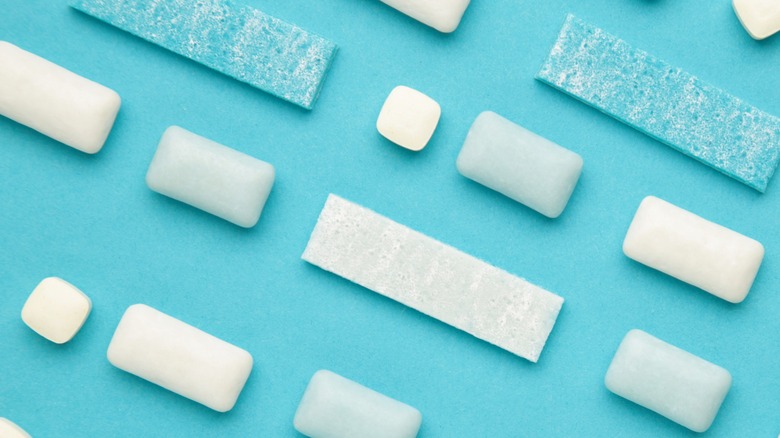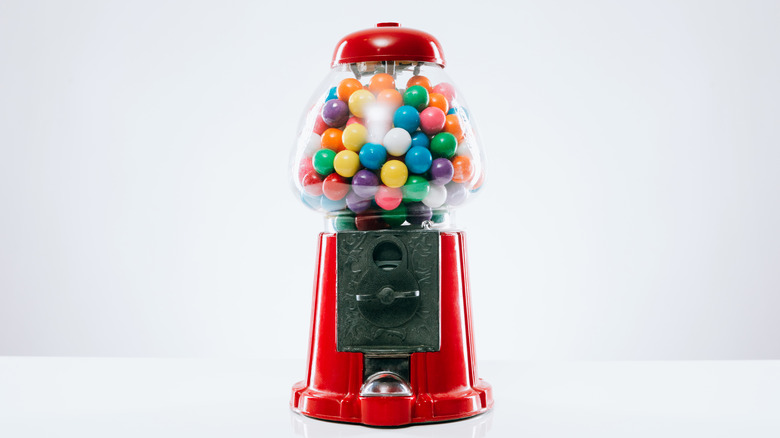The Scientific Reason Chewing Gum Doesn't Actually Expire
At some point or another, you've bought a pack of chewing gum and forgotten about it. Whether you misplaced it or just hadn't got around to enjoying it is irrelevant. What really matters is knowing that it's still safe to chew, regardless of how long it's been sitting in your purse, glove compartment, cupboard, or wherever else it might be hiding. Yet, while it might sound strange that gum can pretty much last forever (unlike every other thing you put in your mouth), the reasoning behind why is rooted in science.
Gum is available in a range of flavors, from minty to fruity, and everything in between. But, no matter the flavor or its bubble-blowing potential, it always boasts a virtually non-existent shelf-life. To understand this everlasting quality, it's best to look at its ingredients. A recipe of waxes or rubber and plastic derivatives, combined with sweeteners, flavorings, and preservatives, these ingredients are what make chewing gum what it is. They're also what prevents the gum from ever truly expiring.
According to the International Chewing Gum Association, sticks and pieces of gum are products that are very low in moisture and non-reactive, meaning that they won't deteriorate in a way that could pose a health risk. As a result, many countries don't require gum to list an expiration date on packages or wrappers as it would just act as a guideline for quality.
Even without an expiration date, freshness can fade
Just because chewing gum doesn't expire, that doesn't mean that it's completely resistant to deterioration. The reality is that over time, quality can start to take a toll on chewing gum. For instance, appearance may change and leave pieces looking less vibrantly colored. Likewise, flavors can also begin to dull. However, the biggest threat is a change in texture as gum may become dry and hard or even crumbly, which may have an effect on its elasticity. Ever had a bite of an old stick packaged in baseball cards?
To keep pieces of gum as fresh as possible as long as possible, proper storage is a must. Luckily, all you need to do is keep gum somewhere that's cool and dry. Additionally, it's wise to keep packs out of direct sunlight. As an extra precaution, we even urge against opening a pack unless you know you'll be chewing gum soon as this can limit threats to quality.
The bottom line is that it can't hurt to check for a best-before date when you buy a pack of gum. In fact, it might just help you better determine its freshness. Whether or not it's listed, we recommend chewing it within a reasonable time frame — ideally, within 9 months of purchasing. What's more, remember that these guidelines only apply to store-bought gum since homemade versions lack the same additives that can keep gum fresh. On that note, we'll leave you to get chewing!

